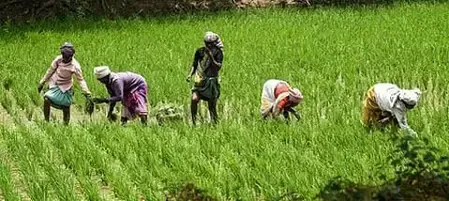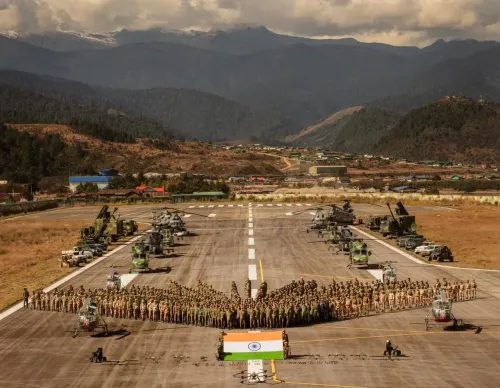Should the TN Government Delay Regulated Irrigation to Protect Crops?

Synopsis
Key Takeaways
- Farmers urge a delay in regulated irrigation.
- Low storage levels threaten crops.
- Insufficient rainfall has impacted water availability.
- Periyar dam has sufficient reserves for extended irrigation.
- Timely adjustments can safeguard livelihoods.
Chennai, Nov 16 (NationPress) Farmers affiliated with the Periyar–Vaigai Thirumangalam Main Canal Water Users' Federation have appealed to Tamil Nadu's Water Resources Department (WRD) to delay the initiation of regulated irrigation by at least one month, cautioning that an earlier timeline could result in widespread crop devastation across the ayacut.
In a formal request directed to the WRD, federation head M.P. Raman indicated that water was channeled into the Melur and Thirumangalam main canals for the present irrigation season on September 18.
Nevertheless, insufficient rainfall since that date has caused most irrigation reservoirs to be below 30 percent capacity, a significant decline from the usual levels expected during this period of the monsoon.
Under typical circumstances, reservoirs across the system achieve over 75 percent capacity within 45 days of water release. However, the federation pointed out that a mix of weak monsoon inflows and damage to various direct irrigation infrastructures has significantly obstructed water flow into these reservoirs.
Many infrastructures along the main canal have not been adequately repaired in time for the season, leading to reservoirs receiving only minimal inflow.
The situation is particularly dire along the Thirumangalam main extension canal, where numerous tanks remain entirely dry, according to farmers.
Consequently, tail-end fields are still in the process of transplantation, even as the WRD readies to implement regulated irrigation.
If the regulation proceeds as per the current timeline, the federation cautioned that standing crops, already stressed by insufficient soil moisture, could incur irreversible damage.
The petition urged the WRD to delay regulated irrigation by a minimum of one month and ensure the release of additional water during this extended timeframe to address the shortfall caused by the weak monsoon and low storage levels.
Farmers also highlighted that the Periyar dam currently retains over 10,000 million cubic feet of water, demonstrating adequate reserves to facilitate extended irrigation.
With the northeast monsoon anticipated to persist until December, the federation asserted that further inflows into the Periyar–Vaigai system are probable, making it practical to maintain a continuous water supply for up to 120 days.
Farmers contended that postponing regulated irrigation and ensuring consistent water releases would not only stabilize the standing crops but also avert significant productivity losses across vast areas.
They appealed to the WRD to take into account the ground realities and adopt a flexible schedule to protect the livelihoods of farmers in the region.









